Heidelberg University
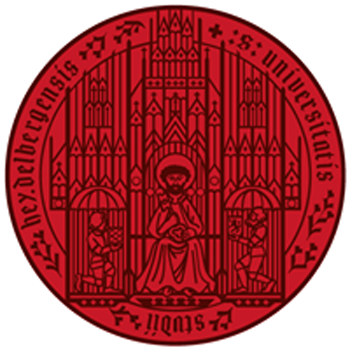
Founded: 1386
Address: Grabengasse 1 - Baden Wurttemberg, Germany
Phone: +496221 5419011
Address: Grabengasse 1 - Baden Wurttemberg, Germany
Phone: +496221 5419011
Here you find out Heidelberg University complete information about fees, location, degree Heidelberg University offers, number, website, and much more. Heidelberg University is a leading university in Baden Wurttemberg - Germany.
You can also find out jobs at Heidelberg University for students, teachers, and professors. We also update the database for an internship at Heidelberg University for students.
Heidelberg University sees itself as a research university with a strong international orientation. Besides enhancing its disciplinary strengths, the University places special emphasis on maintaining the dialogue across traditional subject boundaries.
Founded in 1386, Heidelberg University, a state university of BadenWürttemberg, is Germany’s oldest university. In continuing its timeho...noured tradition as a research university of international standing the Ruprecht-Karls-University’s mission is guided by the following principles:
Firmly rooted in its history, the University is committed to expanding and disseminating our knowledge about all aspects of humanity and nature through research and education. The University upholds the principle of freedom of research and education, acknowledging its responsibility to humanity, society, and nature.
According to its motto »Semper apertus« (»Always open«) Heidelberg University, in a spirit of open-mindedness and tolerance towardindividuals and ideas, aspires to generate and harness knowledge and skills for the benefit of today’s and future generations.
Heidelberg University’s identity as a comprehensive university has grown out of its academic history, its commitment to the present, and its role in shaping the future. The research and educational efforts of the university are devoted to pursuing the central questionsconfronting humanity, concentrating on fundamental research and its application, and empowering Heidelberg’s students to participatein this scientific and academic endeavour at an early stage.
The disciplines taught at Heidelberg University encompass the humanities, the social sciences, law, natural sciences, and the life sciences, including medicine.
Students, researchers, teachers, technical staff, and administrative personnel form an integral part of the university. Heidelberg University is a self-governing institution committed to the principles of good academic practice.
Heidelberg University connects the knowledge and expertise of its members across generations. It is dedicated to systematically advancing the careers of young scholars and scientists, offers established academics ample opportunity for independent research, and assures the continued presence of outstanding emeriti by conferring on them the rank of senior professors. This alliance of knowledge provides an excellent foundation for the identification and dedicated pursuit of new research questions. The University is thus ideally positioned to meet future challenges with an appropriate degree of flexibility.
The intricate connection between research and teaching provides for an education that is academic, practical, and continuous.
Heidelberg University is committed to providing equal opportunity for men and women, to ensuring the compatibility of professional work and family, and to upholding the principle of diversity and equality both within and outside the bounds of the University.
Heidelberg University will strengthen and extend its cooperation with non-university research institutions.
Heidelberg University intends to further cultivate its contacts with former students and graduates, friends and supporters, as well as its partners in business and industry to attract additional encouragement and support.
Heidelberg University’s international orientation is a long-standing tradition. Occupying a leading position in Germany and in Europe, the University is committed to providing its global competitiveness. It will continue to increase its attractiveness for outstanding international scholars and students and to expand its international networks in order to provide both junior researchers and senior faculty with the best possible opportunities for further qualification and advancement.
Heidelberg University’s Faculty of Biosciences is one of Europe’s most vibrant and interactive life science faculties in the areas of research and education. It includes a wide spectrum of disciplines, ranging from molecular biosciences to biodiversity, including molecular biotechnology and pharmacy. Research questions are addressed by many different experimental and computer-aided methods ranging from crystallography to whole genome sequencing. Highlights of our scientific life can be found under News, everything you may want to know about individual research groups and collaborative research networks can be found under Research.
The Faculty of Biosciences is part of Heidelberg’s unique campus structure, the Neuenheimer Feld. It not only hosts all the natural and life science faculties, but also the Medical Faculty, plus excellent non-university research institutions like the German Cancer Research Center or the Max-Planck-Institute for Medical Research. Heidelberg’s molecular life science community has successfully positioned itself within the German Excellence Initiative. This has contributed to the development of campus-wide core facilities, providing easy access to cutting-edge technology needed for innovative research and first-class education.
Heidelberg University – also known as Ruperto Carola – was established in 1386 and is Germany’s oldest university. It is also one of the strongest research universities in all of Europe. In 1386, Ruprecht I, Elector Palatine, received the Pope’s permission to establish the university in his residential city of Heidelberg. The Dutch scholar Marsilius of Inghen became the new university’s first rector.
In the centuries since its founding, Heidelberg University has experienced many ups and downs in connection with its scientific reputation, its intellectual charisma, and its attractiveness to professors and students. In the 16th century Heidelberg evolved into a centre of humanism. Martin Luther’s public defense of his Ninety-Five Theses in April 1518 had a lasting effect. In the years following, the university gained a special reputation as Calvinist stronghold. The Heidelberg Catechism was written in 1563 and to this day remains a fundamental confessional for the reformed church. After a difficult span of years marked by revolutions and financial mismanagement, Baden’s first grand duke Karl Friedrich reorganised the university. The university added his name to that of its founder, thereafter calling itself Ruprecht-Karls-Universität.
During the 19th century, Heidelberg was widely celebrated for its high level of research, its liberality and commitment to democratic ideals and its openness to new ideas. This combination attracted a large number of foreign students. This second flowering was marked by extraordinary research efforts across all faculties and was punctuated by such names as Robert Bunsen, Hermann Helmholtz, Gustav Kirchhoff and Max Weber.
As with its first flowering, Heidelberg saw its second great prospering end with the outbreak of war in 1914. The two world wars in the first half of the 20th century and the horrendous circumstances associated with them plunged Heidelberg University into a nadir from which it only slowly recovered.
In the mid-1960s, Heidelberg, like so many other universities, degenerated into an overcrowded degree factory. Between 1950 and 1960, Heidelberg’s student population doubled; it tripled again between 1961 and 2010, leading to extreme overcrowding and overloading. Despite this, and despite concurrent financial problems, Heidelberg recovered its footing and its extraordinary reputation. It has even improved on that reputation, once again becoming extremely attractive to international academics and students alike. Heidelberg University was also successful on both rounds of Germany’s Excellence Initiative – in 2006/07 and in 2012 – and this, combined with its high position in internationally regarded university rankings is a further indication of the university’s leading role and excellent reputation in international academia.
You can also find out jobs at Heidelberg University for students, teachers, and professors. We also update the database for an internship at Heidelberg University for students.
Heidelberg University sees itself as a research university with a strong international orientation. Besides enhancing its disciplinary strengths, the University places special emphasis on maintaining the dialogue across traditional subject boundaries.
Founded in 1386, Heidelberg University, a state university of BadenWürttemberg, is Germany’s oldest university. In continuing its timeho...noured tradition as a research university of international standing the Ruprecht-Karls-University’s mission is guided by the following principles:
Firmly rooted in its history, the University is committed to expanding and disseminating our knowledge about all aspects of humanity and nature through research and education. The University upholds the principle of freedom of research and education, acknowledging its responsibility to humanity, society, and nature.
According to its motto »Semper apertus« (»Always open«) Heidelberg University, in a spirit of open-mindedness and tolerance towardindividuals and ideas, aspires to generate and harness knowledge and skills for the benefit of today’s and future generations.
Heidelberg University’s identity as a comprehensive university has grown out of its academic history, its commitment to the present, and its role in shaping the future. The research and educational efforts of the university are devoted to pursuing the central questionsconfronting humanity, concentrating on fundamental research and its application, and empowering Heidelberg’s students to participatein this scientific and academic endeavour at an early stage.
The disciplines taught at Heidelberg University encompass the humanities, the social sciences, law, natural sciences, and the life sciences, including medicine.
Students, researchers, teachers, technical staff, and administrative personnel form an integral part of the university. Heidelberg University is a self-governing institution committed to the principles of good academic practice.
Heidelberg University connects the knowledge and expertise of its members across generations. It is dedicated to systematically advancing the careers of young scholars and scientists, offers established academics ample opportunity for independent research, and assures the continued presence of outstanding emeriti by conferring on them the rank of senior professors. This alliance of knowledge provides an excellent foundation for the identification and dedicated pursuit of new research questions. The University is thus ideally positioned to meet future challenges with an appropriate degree of flexibility.
The intricate connection between research and teaching provides for an education that is academic, practical, and continuous.
Heidelberg University is committed to providing equal opportunity for men and women, to ensuring the compatibility of professional work and family, and to upholding the principle of diversity and equality both within and outside the bounds of the University.
Heidelberg University will strengthen and extend its cooperation with non-university research institutions.
Heidelberg University intends to further cultivate its contacts with former students and graduates, friends and supporters, as well as its partners in business and industry to attract additional encouragement and support.
Heidelberg University’s international orientation is a long-standing tradition. Occupying a leading position in Germany and in Europe, the University is committed to providing its global competitiveness. It will continue to increase its attractiveness for outstanding international scholars and students and to expand its international networks in order to provide both junior researchers and senior faculty with the best possible opportunities for further qualification and advancement.
Heidelberg University’s Faculty of Biosciences is one of Europe’s most vibrant and interactive life science faculties in the areas of research and education. It includes a wide spectrum of disciplines, ranging from molecular biosciences to biodiversity, including molecular biotechnology and pharmacy. Research questions are addressed by many different experimental and computer-aided methods ranging from crystallography to whole genome sequencing. Highlights of our scientific life can be found under News, everything you may want to know about individual research groups and collaborative research networks can be found under Research.
The Faculty of Biosciences is part of Heidelberg’s unique campus structure, the Neuenheimer Feld. It not only hosts all the natural and life science faculties, but also the Medical Faculty, plus excellent non-university research institutions like the German Cancer Research Center or the Max-Planck-Institute for Medical Research. Heidelberg’s molecular life science community has successfully positioned itself within the German Excellence Initiative. This has contributed to the development of campus-wide core facilities, providing easy access to cutting-edge technology needed for innovative research and first-class education.
Heidelberg University – also known as Ruperto Carola – was established in 1386 and is Germany’s oldest university. It is also one of the strongest research universities in all of Europe. In 1386, Ruprecht I, Elector Palatine, received the Pope’s permission to establish the university in his residential city of Heidelberg. The Dutch scholar Marsilius of Inghen became the new university’s first rector.
In the centuries since its founding, Heidelberg University has experienced many ups and downs in connection with its scientific reputation, its intellectual charisma, and its attractiveness to professors and students. In the 16th century Heidelberg evolved into a centre of humanism. Martin Luther’s public defense of his Ninety-Five Theses in April 1518 had a lasting effect. In the years following, the university gained a special reputation as Calvinist stronghold. The Heidelberg Catechism was written in 1563 and to this day remains a fundamental confessional for the reformed church. After a difficult span of years marked by revolutions and financial mismanagement, Baden’s first grand duke Karl Friedrich reorganised the university. The university added his name to that of its founder, thereafter calling itself Ruprecht-Karls-Universität.
During the 19th century, Heidelberg was widely celebrated for its high level of research, its liberality and commitment to democratic ideals and its openness to new ideas. This combination attracted a large number of foreign students. This second flowering was marked by extraordinary research efforts across all faculties and was punctuated by such names as Robert Bunsen, Hermann Helmholtz, Gustav Kirchhoff and Max Weber.
As with its first flowering, Heidelberg saw its second great prospering end with the outbreak of war in 1914. The two world wars in the first half of the 20th century and the horrendous circumstances associated with them plunged Heidelberg University into a nadir from which it only slowly recovered.
In the mid-1960s, Heidelberg, like so many other universities, degenerated into an overcrowded degree factory. Between 1950 and 1960, Heidelberg’s student population doubled; it tripled again between 1961 and 2010, leading to extreme overcrowding and overloading. Despite this, and despite concurrent financial problems, Heidelberg recovered its footing and its extraordinary reputation. It has even improved on that reputation, once again becoming extremely attractive to international academics and students alike. Heidelberg University was also successful on both rounds of Germany’s Excellence Initiative – in 2006/07 and in 2012 – and this, combined with its high position in internationally regarded university rankings is a further indication of the university’s leading role and excellent reputation in international academia.
Read More
Details:
LeaderShip: Dean: Prof. Frauke Melchior
Fees:
Time:
Phone Number: +496221 5419011
City: Baden Wurttemberg
Fees:
Time:
Phone Number: +496221 5419011
City: Baden Wurttemberg
Timing:
Country: Germany
Staff: 5000
Website: http://www.uni-heidelberg.de
Country: Germany
Staff: 5000
Website: http://www.uni-heidelberg.de
Subjects:
Video:
Jobs in Heidelberg University
Currently, there is no job opening in Heidelberg University as per our database.

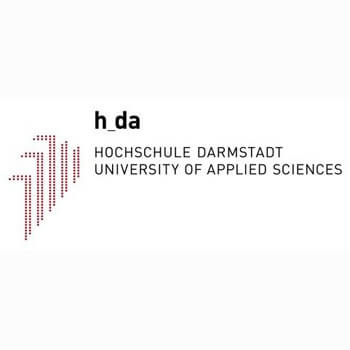
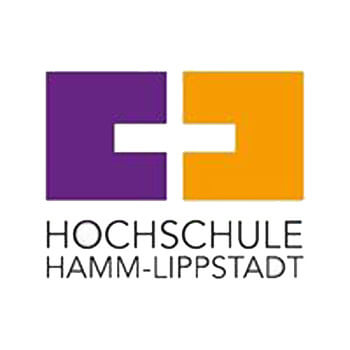
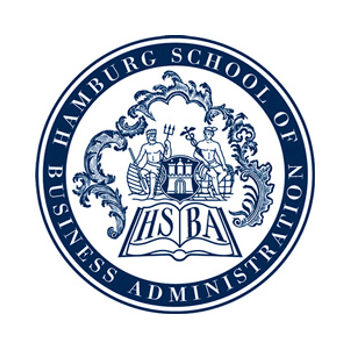




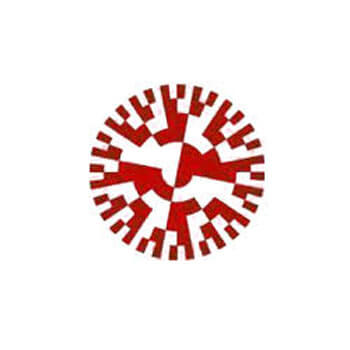










Leave a Reply